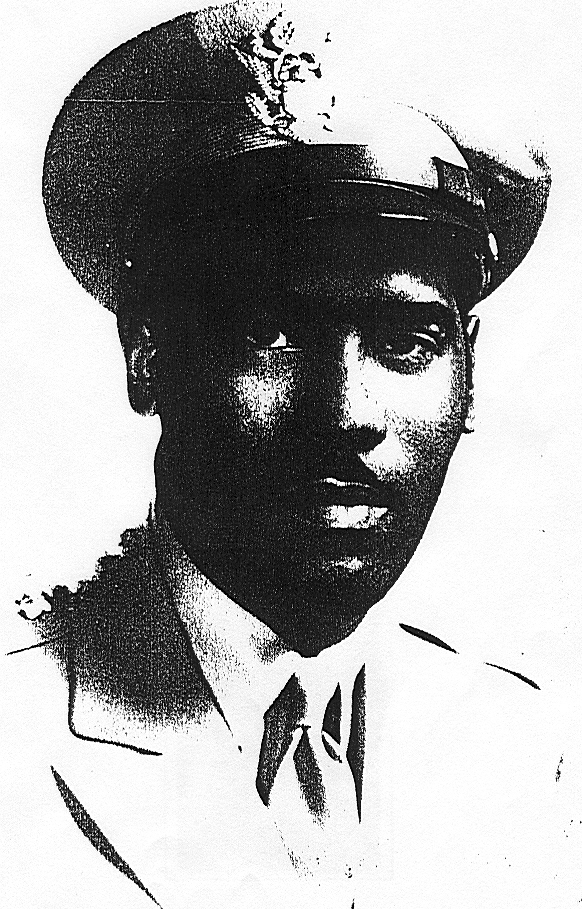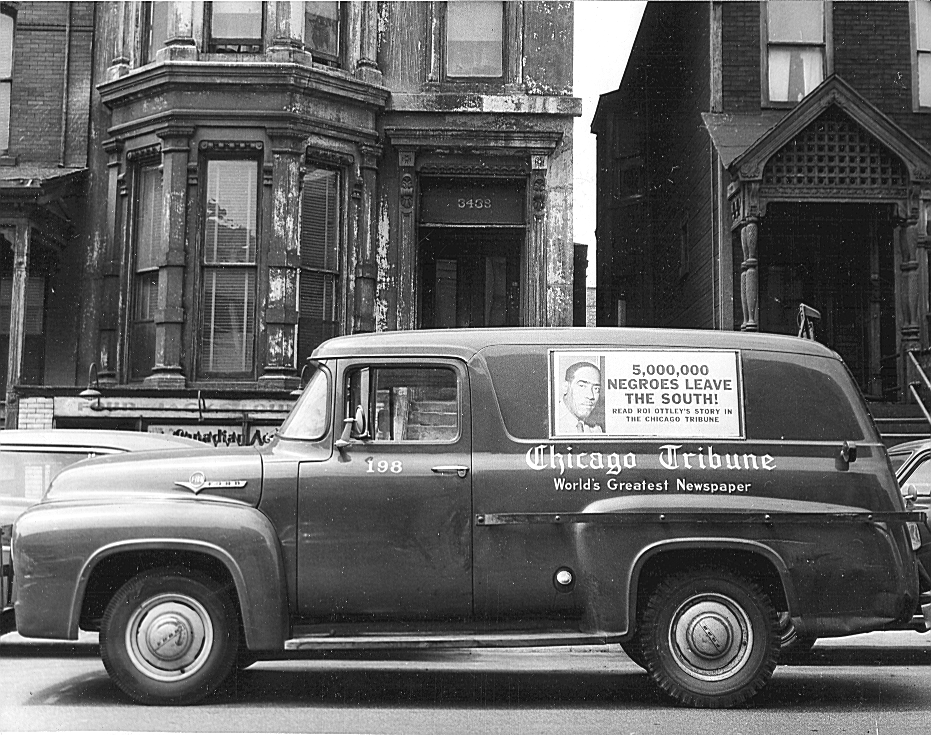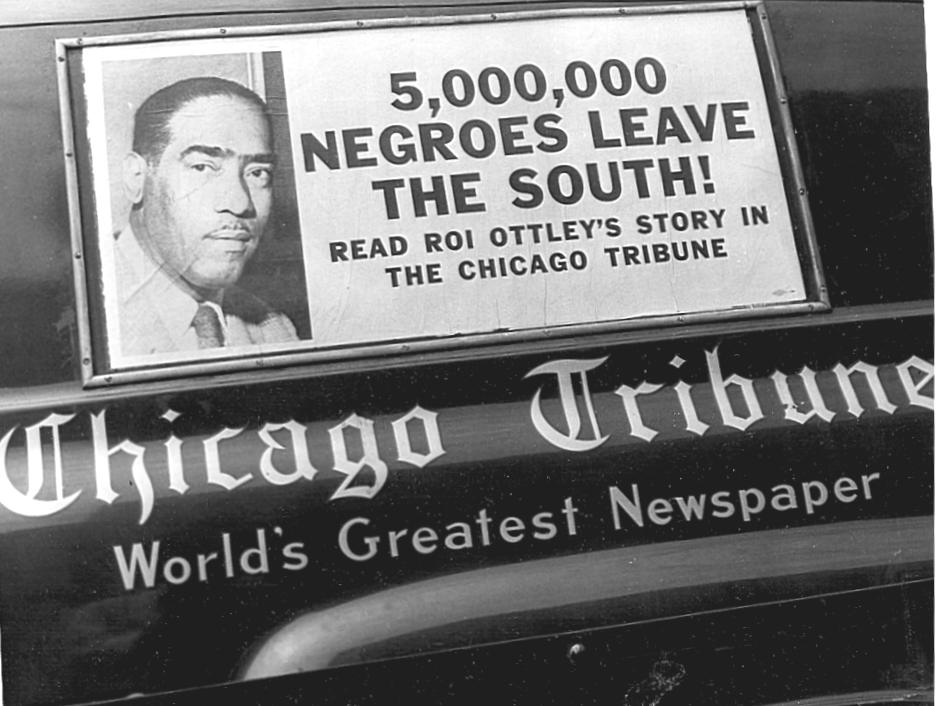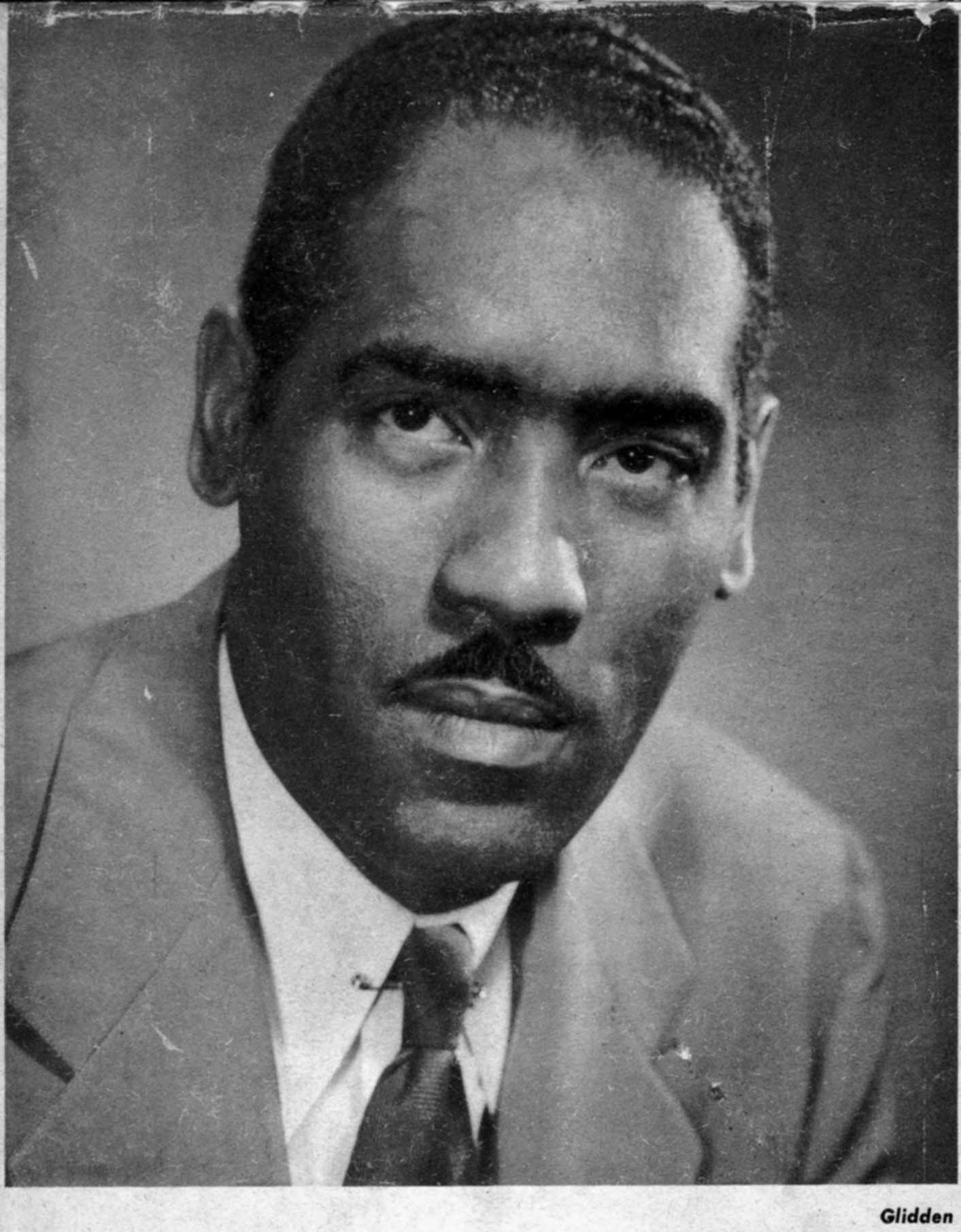In a 1944 interview with The New York Post, Ottley recalled
how at St. Bonaventure, "...he found no racial prejudices but instead was
accepted in all social gatherings." Ottley's experiences at the
University of Michigan though, weren't as positive. Instead, he
"discovered plenty of prejudices," and "was barred from such
activities as debating and dramatics." After staying at Michigan for only a year, Ottley decided to return home to New
York City where he studied law for a short time at St. John's University.
While briefly attending school part time at Columbia and St. John's, Ottley
began working as a journalist for The Amsterdam News.
In 1943, Ottley's first book entitled New World A-Coming was published
and immediately became a best seller. It won a number of
literary awards including the Life in America prize, Ainsworth Award, and Peabody
Award. In the book, Ottley explains what it's like to live as a "Negro" and how
"Negroes" view their past and future.
In 1944, Ottley
earned an officers commission in the United States Army and traveled to Europe
to cover World War II. Known as "the first Negro war-correspondent to write
for a major newspaper", he covered the war on a day to day basis
for Liberty Magazine, PM and the Pittsburgh Courier. Not
only did Ottley cover the war itself, but he also analyzed and wrote about
racism in Europe.
 |
Ottley in uniform as a war-correspondent
|
Ottley focused primarily on race relations among the troops
as well racism among Europeans and their respective countries. During his
time in Europe, he logged over 60,000 miles and visited 22 countries. In 1945, he
also became the first black-American journalist to meet with the Pope
when he visited Pius XII.
Ottley's experiences overseas inspired him to write
more books. His second book, Black
Odyssey was published in 1948 and looked at the life of "Negroes" since
they're arrival to the United States. It tells how blacks have risen from
slavery and struggled ever since. It also explores the varying degrees of
racism that existed in the North and South at the time. Among the people
it depicts are Joe Louis, Walter White and Crispus Attucks.
In 1951,
another book by Ottley entitled No Green Pastures was published.
This book took an in-depth look at race relations in Europe and exposed the
serious problems that European countries faced with regards to race.
During his travels to England, France, Germany, Italy, Greece, Egypt, Israel and
the Balkans, Ottley conducted a considerable number of interviews and
surveys. He found that although conditions may appear to be better in
Europe, its race problems are more severe and institutionalized.
His
fourth book, The Lonely Warrior was based on the incredible life and
accomplishments of Robert Abbot, founder of the Chicago Defender.
Another book, White Marble Lady was published after his death by his
widow, Alice Dungey. Ottley had virtually completed the entire book, and
Alice helped put the final touches on it. White Marble Lady, his
only fictional book, told the story of an interracial
marriage. In 1967, Ottley's final work, The Negro in New York was
published. Along with William Weatherby, Roi Ottley edited this
"informal social history" of blacks in the United States beginning in
the 1600's.
Some of Ottley's best known work as a journalist came while he was a columnist
for the Chicago Tribune. The majority of his articles focused on
race-relations as well as the difficult social and economic conditions that
blacks encountered. Although Ottley wrote about the obstacles that blacks
faced, he also reported the progress that they were making at the same
time. He devoted numerous columns to the individual accomplishments of
blacks within their communities. He wrote about new businesses and youth
centers that blacks were opening up throughout Chicago. He reported on the
arrivals of new pastors as well as the achievements of black women within the
city. While in Chicago, Ottley even hosted his own weekly radio show on
WGN.
 |
 |
|
Photos by Cleodia H. Lyles, May 1956,
Chicago, IL. |
When looking back at the life of Ottley, it's important to
understand that he was much more than a writer. "From a professional viewpoint, Ottley became a combination
journalist, social historian, author, columnist, radio commentator, editor, and
war correspondent." (1) Despite the unfair treatment of blacks
throughout his lifetime, Ottley was able to overcome substantial
obstacles. Although he personally experienced racism and prejudice throughout
his career, he never lost faith in himself nor his cause. Because of
Ottley's ability to report fairly and accurately on race relations, he was widely respected
and admired by blacks and whites alike. Reflecting back upon his career as a
black journalist who encountered and reported on racism, Ottley said: "Sometimes, moved deeply by such damnable acts of
prejudice, I have sat down to write a hot-headed protest. But fortunately,
I have allowed the words to cool and then I know it is not right. It must be told without passion. The facts must tell the
story." (2)

1) Frances C. Locher, ed., Contemporary Authors, Vols. 89-92 Detroit,
MI: Gale Research Company & The Book Tower, 1980), 388. Max J.
Herzberg, The Reader's Guide to Encyclopedia of American Literature (New
York: Thomas Y. Crowell Company, 1962), 839. Donald Paneth, The
Encyclopedia of American Journalism (New York: Facts on File publications,
1983), 358 (as quoted by Alan Delozier in An Examination of Race-Relations
in Great Britain in the United States, 1942-45 by Black American Journalist Roi
Ottley.)
2) Dexter Teed, "Ottley sees New World A-Coming" New York Post
Daily Magazine, 7 April 1944. p.1





Biography
Works
Archival Holdings
Last updated:
05 December 2011
